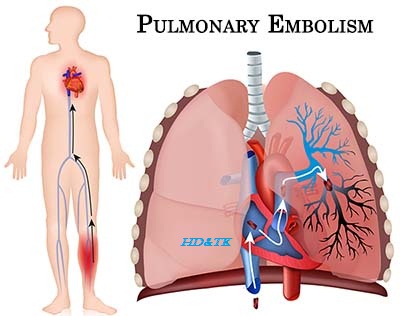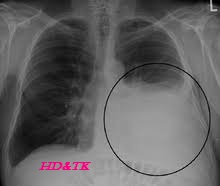Intestinal Failure
Intestinal
failure occurs when your intestines can't digest food and absorb the fluids,
electrolytes and nutrients essential to live. Intestinal failure is most often
caused by short bowel syndrome, a problem that affects people who have had half
or more of their small intestine removed due to injury or surgery to treat
conditions such as trauma or mesenteric artery thrombosis. Intestinal failure
also may be caused by digestive disorders, such as Crohn's disease or chronic
idiopathic intestinal pseudoobstruction syndrome, which causes the bowel to
malfunction.
Signs
& Symptoms:
If
you have intestinal failure, you may receive all or most of your nutrients and
calories intravenously through total parenteral nutrition (TPN). TPN is given
through a catheter placed in the arm, groin, neck or chest. Patients on TPN may
live for many years, but long-term use of TPN can result in serious
complications, such as bone disorders, central venous catheter infections and
liver disease. Our goal is to restore intestinal function to minimize and
ultimately eliminate the need for TPN. Unfortunately, not every patient can be
weaned from TPN. In these cases, we work to optimize the use of TPN and
decrease the risk of complications.
Conditions
Patients
who may benefit from being treated at the Intestinal Rehabilitation and
Transplantation Program include:
Adults
with intestinal failure caused by:
-
Desmoid tumor, a benign growth of tissue that can develop in the abdomen
-
Fistulae or an abnormal duct that connects an abscess, cavity or hollow organ
to the body surface or to another hollow organ
-
Inflammatory bowel disease, such as Crohn's disease where chronic inflammation
occurs in the intestines
-
Multiple intestinal surgeries resulting in adhesions, motility problems that
may lead to abnormal intestinal contractions and spasms
-
Pseudoobstruction that impairs gastrointestinal motility despite the absence of
an actual obstruction
-
Radiation enteritis, a disorder of the large and small bowel that occurs during
or after a course of radiation therapy to the abdomen, pelvis or rectum
-
Refractory celiac disease, also known as sprue, a digestive disease that
damages the small intestine and interferes with absorption of nutrients from
food
-
Superior mesenteric artery/vein thrombosis
- Trauma
-
Tumor resection
-
Volvulus or an abnormal rotation of the intestine
Signs
& Symptoms:
Patients
interested in the Intestinal Rehabilitation and Transplantation Program must
complete an evaluation before qualifying for the program. Our team reviews each
patient's medical history, including the primary diagnosis, previous surgeries,
previous treatments and current nutritional status to determine whether he or
she will benefit from intestinal rehabilitation.
The
patient evaluation process includes:
- Consultations
with a gastroenterologist and nurse practitioner, surgeon, nutritionist and
social worker
-
Laboratory tests
-
Radiological tests
Additional
tests when necessary, such as endoscopy with biopsy, gastrointestinal motility
testing, breath hydrogen testing for bacterial overgrowth or malabsorption and
imaging tests, such as abdominal CT scan
After
the evaluation process is completed, our team determines if the patient should
be admitted into the Intestinal Rehabilitation Program. If the patient is
admitted, a comprehensive, individual treatment plan is designed to best meet
their needs.
Diagnosis:
Patients
interested in the Intestinal Rehabilitation and Transplantation Program must
complete an evaluation before qualifying for the program. Our team reviews each
patient's medical history, including the primary diagnosis, previous surgeries,
previous treatments and current nutritional status to determine whether he or
she will benefit from intestinal rehabilitation.
The
patient evaluation process includes:
Consultations
with a gastroenterologist and nurse practitioner, surgeon, nutritionist and
social worker
Laboratory
tests
Radiological
tests.
Additional
tests when necessary, such as endoscopy with biopsy, gastrointestinal motility
testing, breath hydrogen testing for bacterial overgrowth or malabsorption and
imaging tests, such as abdominal CT scan
After
the evaluation process is completed, our team determines if the patient should
be admitted into the Intestinal Rehabilitation Program. If the patient is
admitted, a comprehensive, individual treatment plan is designed to best meet
their needs.
Treatment:
The
Intestinal Rehabilitation and Transplantation Program offers a wide range
services for adults and children. The type and length of treatment differs for
each patient, depending on the needs and goals.
Services
include:
Counseling
and education about intestinal rehabilitation
Drug
and diet modification to train the small intestine to absorb more nutrients.
Consultations to help assess and correct nutrient deficiencies and prevent
damage to kidneys, bones and liver
Management
of TPN to avoid complications.




Comments
Post a Comment